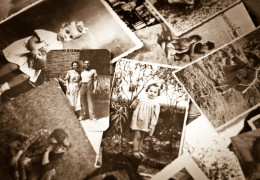For many people around the world, the New Year is supposed to be a time of celebration, connection, reflection, and goal-setting.
That’s a tall, anxiety-inducing order, isn’t it? But it doesn’t have to be, if you understand that the point of all this frenetic activity is to generate meaning.
Our library of research-tested practices, Greater Good in Action, contains many ways to help you to find meaning in the events of your life; some of them are embedded throughout this article.
Of course, making meaning is something that people do instinctively, and our efforts are supported by a great deal of tradition. At the New Year, we look back on the previous year in order to find the significance and consequences of our actions—and we look ahead for purpose.
This might be why we seem to almost unwillingly try to connect with other people on New Year’s Eve and Day, for the research into meaning and purpose reveals a paradox: They come from within, but meaning and purpose often develop from our relationships with other people. When I polled my own friends about their New Year’s rituals, I heard about many activities that are centered around friends and family. For example, Amy Cranch writes:
One of my favorites is selecting 2-4 movies and posting an open call on Facebook for anyone who wants to join. Then we meet before or after for drinks and nibbles. It’s a great way to connect with friends in a low-cost, easy way (vs. planning a party), and you never know who’s going to show up.
For Rachel Calabia Epp, connecting with family also means following traditions that come through her family:
My family followed a bunch of Filipino and Chinese traditions when we were kids: we would eat a lot of round fruit (like oranges) which supposedly bring good luck. My mom would wear something with polka dots, which symbolizes money. Oh, we’d also jump up and down right at midnight since it was supposed to make us grow taller. (This was an obvious fail given my family’s average height.)
Annie Nogales Chandler draws on her Cuban and Spanish heritage for traditions: “Eat 12 grapes at the stroke of midnight—one for each month of the New year, for good luck.”
People also offered different ways for measuring the significance of the past year’s events, which were often very private. Kristin Wojkowski reviews the things she’s done—“happy feelings and the things that left me unsatisfied”—and reminds herself “of the lessons I learned from the not-so-great things,” while still basking in the good things. For her part, Alexandra Nicolas writes:
A few years ago I switched from a day planner to a notebook with one page per day. Since then, every year on my Christmas break, I sit down for a few hours with a library stamp and my notebook(s) for next year, and stamp each page. Then I review that last year’s notebook to see what needs to be copied over, ruminate on what goals were met, and in what ways. Usually there’s a page for notable wins and struggles for the year, plus lots of little lists. Recipes we liked. Coffee blends tried. Things we disagreed on and how we resolved them, etc. Plus lots of notes to future me on specific dates: “You went through three bags of Halloween candy last year.” “Start paying attention now to tomatoes at the farmers’ market.” Anything that needs to be carried over gets copied, then last year goes on the shelf.
“I like to go back and read my end-of-year reflections from years past,” says Dave Pai. “And then write a one-page reflection after I have a couple of weeks to digest my thoughts and actions for the past year.” Heather Henderson’s family takes a more direct, negative approach: “We write all of the shitty things that went wrong on pieces of paper and burn them before midnight on December 31st so we don’t drag that baggage into the new year.” (She also mentions tossing out all the unmatched socks her family creates every year!) Annie throws “a bucket of water out the door—to get rid of bad vibes.”
In these ways, people find meaning in the previous year. That meaning can become the foundation of a purpose for the next year.
But how do you find that purpose? We at the Greater Good Science Center have published many articles and exercises to help you think about what you want, who you want to be, and what kind of impact you want to have on the world. Here are a few for you to consider.


















Comments